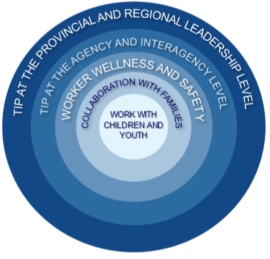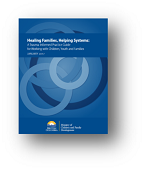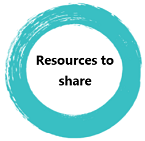Trauma-Informed Practice (TIP) – Resources
 Why the Guide?
Why the Guide?
The Healing Families, Helping Systems: A Trauma-Informed Practice Guide for Working with Children, Youth and Families (TIP Guide) was published in 2017 through a joint committee process, researched and written by the Centre of Excellence for Women’s Health (CEWH), a team that has also written guidance for other ministries. Dr. Nancy Poole, from the CEWH and co-writer of the guide, with the support of Delegated Aboriginal Agencies (DAAs) and the Ministry of Children and Family Development (MCFD) have developed resources and materials found below to orient staff, practitioners, caregivers, care providers and our key partners to the guide and to trauma-informed practices.
What is TIP?
Trauma-Informed Practice is a strengths-based framework grounded in an understanding of and responsiveness to the impact of trauma. It emphasises physical, psychological, and emotional safety for everyone, and creates opportunities for survivors to rebuild a sense of control and empowerment. The guide will coach you on how you can use a trauma-informed approach to support children, youth and families, in your teams and/or personal life.
Why TIP?
- Supports integrating a foundational understanding of trauma into all levels of care to guide the work of staff including leaders, system planners, practitioners, caregivers, care providers and our key partners working with children, youth and families.
- Creates safer environments for staff and clients.
- The guide’s content invites and explains how everyone within all layers of the organization can be involved and how we can practice trauma-informed approaches to develop programs, services and environments that avoid re-traumatizing individuals and support safety, choice, and control in order to promote healing.
How does TIP link to the Aboriginal Policy and Practice Framework (APPF)?
Being trauma-informed is a fundamental tenet of the Circle process outlined in the APPF. The TIP Guide was developed to align with the values and principles outlined in the APPF and can help to inform those working to incorporate the APPF into their practice with Indigenous children, youth and families. Utilizing these two documents in tandem will help to strengthen culturally safe and holistic practice.
How do I learn more about TIP?
 |
Download the TIP Guide |
 |
Watch the Webinars |
 |
Read and Share Resources |
If you think a child or youth under 19 years of age is being abused or neglected, you have the legal duty to report your concern to a child welfare worker.
Phone 1 800 663-9122 at any time of the day or night.
Learn more about the impacts associated with experiences of violence and abuse.
Sometimes families can benefit from a little extra help. Learn more about how to engage with youth, find specialized support for important transitions, and access useful services to help keep your family together during challenging times.
